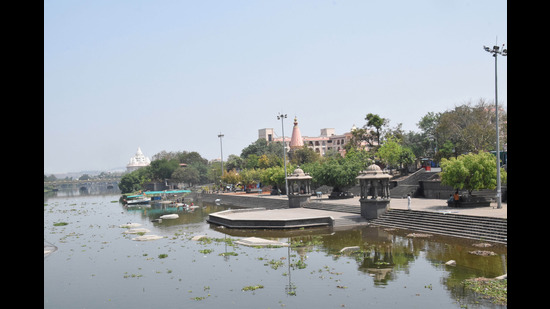Set up timeline for establishing STPs: NGT directs PMRDA
NGT directs PMRDA to finalize a timeline for 18 sewage treatment plants in Pune District amid pollution concerns in the Indrayani River.
In a hearing on October 16, the Western Bench of the National Green Tribunal (NGT) directed the Pune Metropolitan Region Development Authority (PMRDA) to finalise a timeline for its proposed 18 Sewage Treatment Plants (STP) in various Nagar Panchayats, Cantonment Boards, and municipal councils in Pune District.

On March 22 this year, the principal bench of the NGT registered a suo moto case regarding pollution in the Indrayani River based on a news report titled, “Layer of toxic foam floats on the surface of the Indrayani River in Pune” published in the February 12 edition of Hindustan Times.
The case was later moved to the Western Bench. Since then, the NGT has requested that relevant responses be submitted by the Maharashtra Pollution Control Board (MPCB), Pimpri-Chinchwad Municipal Corporation (PCMC), PMRDA, Dehu cantonment, and six local bodies on the banks of the Indrayani River, including Lonavala Municipal Council, Vadgaon Nagar Panchayat, Talegaon Dabhade Municipal Council, Dehu Road Cantonment Board, Dehu Nagar Panchayat, and Alandi Municipal Council.
In previous sessions, the MPCB and PCMC submitted their responses to river pollution and the efforts taken by both local bodies. In a recent hearing held on October 16, the other six local councils requested an additional week to submit comments.
Meanwhile, PMRDA presented a compliance report in September 2024. Prashant Patil, the PMRDA’s superintending engineer, stated in their compliance report that 18 km of the Indrayani River area are under PMRDA control, specifically under PCMC, and are highly contaminated.
Multiple discussions were held with the PCMC about the possibilities of undertaking rejuvenation as part of the Indrayani River development project. PCMC has previously created a detailed project report (DPR) for pollution abatement along this 18-kilometer stretch.
In the case of industrial waste effluent allowed to be discharged into the Indrayani River, which is stated to be contrary to MPCB information that no industry in that area is permitted to discharge any effluent into the Indrayani River, it is submitted that the water samples were collected by the College of Engineering Pune (COEP) and the report was submitted. The results have already been communicated to the MPCB, who will study them and decide on the next steps based on the facts. River water samples were collected throughout the 18-kilometer PCMC River Stretch, which included the Talawade River, Moshi upstream, and Alandi upstream. These sample test findings indicate that industrial waste is being discharged into the Indrayani River.
Responding to the said issue, Babasaheb Kukade, sub-regional officer zone 2, in his reply affidavit to NGT mentioned that, While the CoEP is an educational institute and has collected the water samples for a very short duration, the board on the other hand had conducted the water sample testing throughout the year and hence the board is differing with the water sample testing result.






